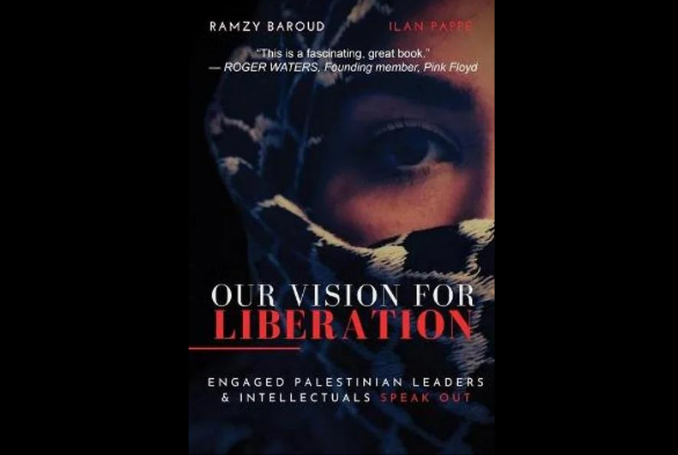
(Our Vision for Liberation: Engaged Palestinian Leaders and Intellectuals Speak Out, by Ramzy Baroud and Ilan Pappé, Clarity Press, 2022)
‘Our Vision for Liberation: Engaged Palestinian Leaders and Intellectuals Speak Out’ is a fascinating book, a beautiful book, a real treasure. Twenty-seven Palestinians, distinguished in a variety of fields, tell their narratives: who they are, what it means to be Palestinian, their efforts to keep alive knowledge of the past, and to maintain and grow their cultural heritage.
Being given the opportunity to contribute to this book has allowed the writers to say to the outside world and to Palestinian youths that, in spite of discouragingly unhelpful political leadership, freedom and liberation will come.
The struggle for liberation demands keeping alive knowledge of the history of the people. Archeologist Hamdan Taha describes the importance of museums and galleries and of UNESCO heritage sites, in preserving cultural memory.
Hasan Abu Nimah, born in1935, recalls life in the small rural village of Battir. He remembers a tranquil way of life that “must have existed for dozens of generations across Palestine “that was not interrupted until world powers outside our control decided to designate our homeland as the property of someone else.”
Hasan Abu Nimah’s contribution is well- titled, A Personal Journey Through Palestine’s Tragedy. In his four-decade diplomatic career, representing Jordan in the United States, in Europe and at the United Nations, he “dealt with the question of Palestine almost every day.” ‘Palestine’s tragedy’ is summarized so clearly: the British replacing the Ottomans in 1917, the 1922 Mandate and the British commitment to Zionism, the British brutally crushing the 1936-39 revolt, the 1947 partition, Deir Yassin, the failure of Arab states to defend Palestine, the secret 1993 PLO Oslo negotiations undermining its own Washington delegation.
Yet Hasan Abu Nimah believes that the time will come when ”the country will be whole again …The only question is how many more precious lives will be wasted before we get there.”
Scientists, writers, doctors, musicians, historians, and filmmakers contribute to ‘Our Vision for Liberation’, sharing their efforts to keep Palestinian culture and memories alive.
Australian-Palestinian Samah Sabawi explains, “I believe we all wage resistance using our best skills. Mine is writing. So, I will continue to write.”
“I write with that Palestinian incurable hope.”
Even embroidery plays a role. The Palestinian History Tapestry Project has been jointly created by women in different locations.
Each contributor, highly academically qualified, shares his/her personal stories of childhood memories. Some of the recollections:
Growing up as a 3rd generation refugee in Gaza’s Khan Younis refugee camp,
Growing up in Nazareth, ie Israel itself, a “homeland that told a narrative that contradicted my existence”
As a 12-year old, helping on the family farm in the Hebron region in 1967 when the war began
The solidarity of Palestinian Chileans
As a small child, the family being expelled from Jerusalem and thus having to leave their house and abandon their dog.
A common theme is of learning from their elders. Scientist Mazin Qumsiyeh recalls, “My maternal grandfather taught me to value and love books.” My Uncle Sana “taught me the love of nature.”
‘Our Vision for Liberation’ is up to date. References are made to the events of May last year when efforts to ‘cleanse’ East Jerusalem, including attacks on Al-Aqsa Mosque were opposed by all Palestinians. And yet, now Ramadan 2022, the violence, including the intrusion of heavily armed violent settlers and IDF personnel into Al-Aqsa, is being repeated.
Hanadi Halawani grows up in East Jerusalem. Her grandmother’s love for Al-Aqsa inspired Hanadi to qualify as a teacher of the Quran and then to become a Murabita, a woman whose ‘main mission in life is to stand guard against all attempts to denigrate Al Aqsa and to deny Palestinian rights in the occupied city’. Her activism has come at a cost. She’s been banned from the Mosque Compound more than once, assaulted by soldiers, arrested.
Last year when the Al Aqsa Mosque was being attacked and invaded by armed settlers and by the IDF, Father Manual Musallan called on Christians to help their fellow Palestinians defend the Mosque. Fr Manual is doing so again this year.
He writes “I am a Palestinian Arab Christian.” “I will struggle with the rest of the Palestinian resisters for the liberation of the holy home. “
Divide and rule tactics against the Palestinians have not worked.
Every contribution to ‘Our Vision for Liberation’ is special. Every article contributes to a realization that Palestinians still exist, and still challenge global society to admire and respect a people who in spite of cruel treatment, including being lied to, and lied about, continue to believe in their right to live as a free people.
There is something very special about Palestinians. Khalida Jarrar, arrested many times under administrative detention, used her time under arrest to demand education opportunities for other women prisoners.
My husband latched on to the book and started reading it before I had a chance. He told me that his first thought before even starting to read it, was to wonder, liberated from what? When he finished and finally handed it over to me, he said, “No one even mentioned revenge.”
So true. In the whole book, there is not one word of revenge.
About liberation, Samah Sabawi explains, “ To be Palestinian is about creating ethics that is rooted in fighting for justice. Palestinian liberation embodies what it means to be unapologetically committed to justice, truth-telling, dignity and freedom, no matter which part of the world you are in.”
Palestinians will be liberated, as all people everywhere should be: free to tell and share their narratives, free to know their own history and culture, and free to be acknowledged and respected as part of global human society.
Palestinians will liberate themselves. They will tell us how to help.
And when Palestinians are liberated, people everywhere will understand that they too can be liberated. ‘Another world is possible.’
I’ll leave the last word to Mazin Qumsiyeh. We receive his regular human rights report. They always end with the message, ”Stay Human”.
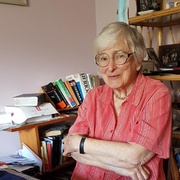
– Lois Griffiths is a Human Rights Activist from Christchurch, Aotearoa/NZ. Lois and her husband Martin follow closely what’s happening in the Middle East, ever since their first of four trips to Israel and the West Bank, in 2009. She contributed this article to The Palestine Chronicle.



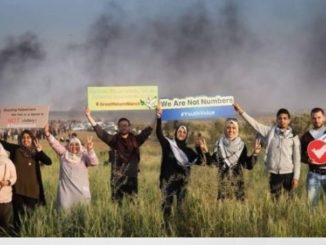
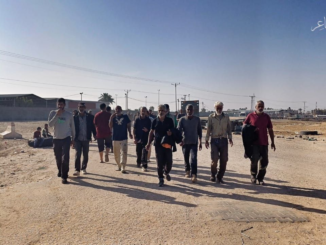
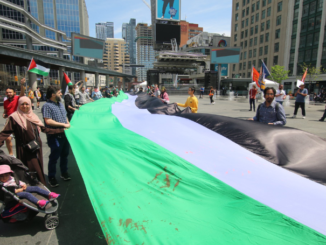


Thank you for publishing my review. It was my pleasure to write it. And, by the way, yes Martin was born in UK. I was born in the US. We met in Malawi where we we both teachers.